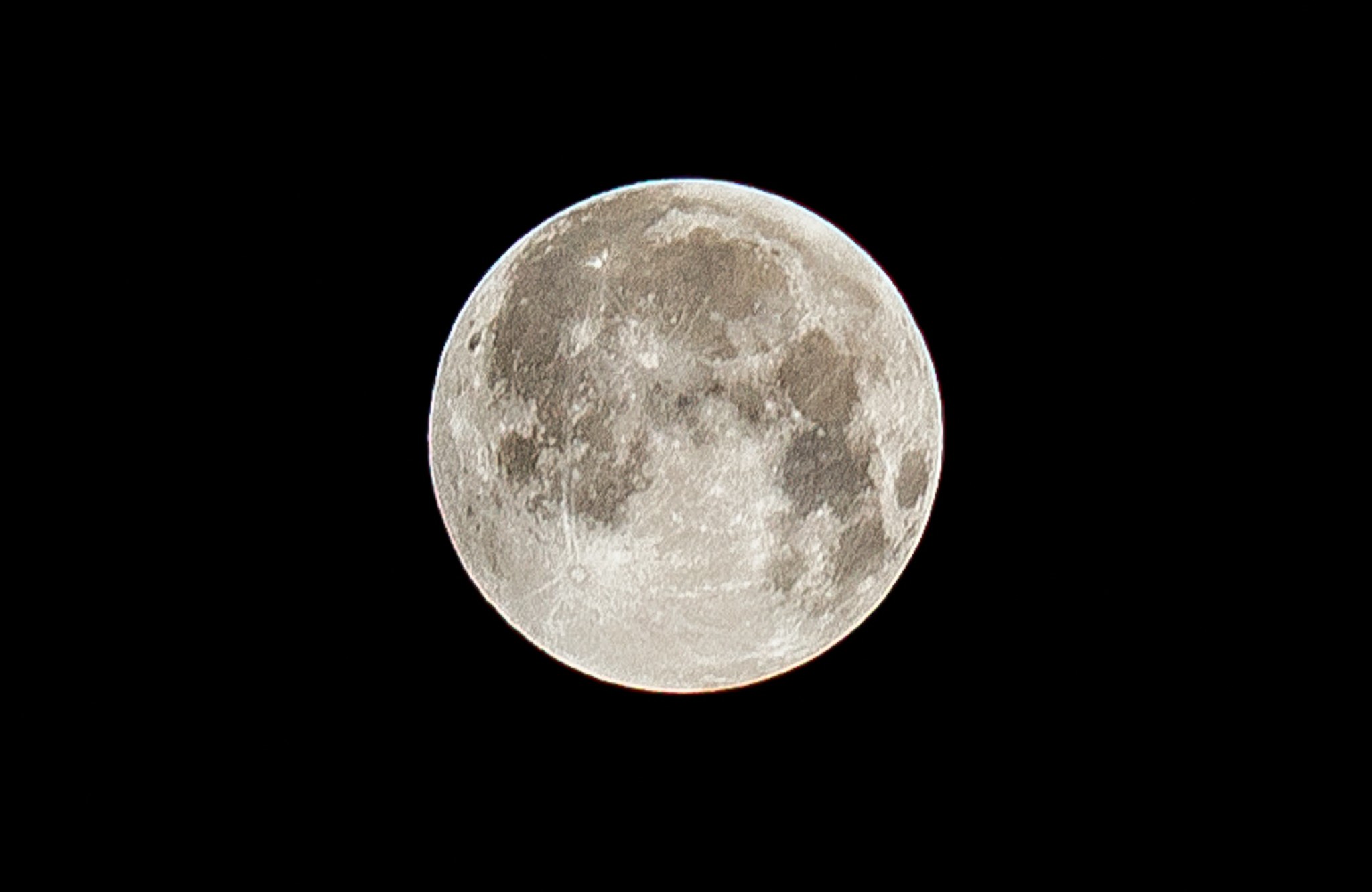Share your photographs...
We would love to feature your photographs on our equipment pages to help inspire others. We respect your copyright. Sharing is easy, just send us a link to your image on social media or your own website and remember to tell us about the following:
State that you own the copyright
Give us permission to use it
Include a link to your your web space
Include a caption for the image
Tell us about the equipment used

Upload date: 2017-08-08 Caption: Full moon, © Anthony Brown
Review this item...
Tell us how you would rate it overall:
There are no reviews for this item
Back again for another update...
Well, the met office says the cloud cover at 22.00 tomorrow will be partial, the winds not too camera-rattling and the temperature not too teeth chattering...
So it's worth a go...
Now, this may not be the time to admit it, but I haven't done too much star photography...shot the Northern Lights in Arctic Norway in minus 28 degrees with some success, but using very basic technique (and thick gloves)
So I brushed up on some research and came up with a list of hints and tips:
1. ARRIVE IN THE LIGHT - getting set up while it’s light and having your camera set up ready is vital. As darkness descends, it can get incredibly difficult to find all the controls on your camera and staring at the LCD screen will ruin your night vision! Also, you'll be able to plan and pre-visualise your shot and find your best angle.
2. Bring a HEADTORCH if you have one, or a torch if you haven’t, especially one with a red light option. They’re really good for keeping night vision. Astronomers use red light a lot. Always reminds me of darkroom days...We’ll need to keep lights to a minimum while shooting, as the beam from your torch can illuminate a part of someone else’s exposure
3. USE YOUR BEST LENS - wide angle seems popular for this kind of work and enables you to capture a wider area of sky. The most useful quality will probably be WIDE MAXIMUM APERTURE (a small f number)
4. While we’re at it, here are some typical DSLR settings :
AUTOFOCUS: OFF (switch to Manual) - I even find setting the focus on infinity and taping it there saves it getting accidentally knocked
IMAGE STABILISER (IS): OFF - The Image Stabiliser is always looking for camera movement to correct, but you’ll be on a tripod so you won’t need it. IS can make itself move around and get misled into actually moving the lens about when it shouldn’t. And it will burn up battery power.
ISO: 1600-3200 - I’m told this will be right for getting stars without trails while allowing the shooting star streaks and some illumination on any foreground features....
EXPOSURE MODE - MANUAL (M) or BULB (B) Typical Exposure settings will be something like 20 seconds at f2.8
RAW FILES: YES - absolutely vital if you’re going to pull out those “unseen” details like the Milky Way (yep, we might see it) and foreground detail.
SELF TIMER: at 2 SECONDS (if you don’t have a remote or cable release) This allows the camera to settle after you’ve pressed the button and eliminates some movement. Remember, if you aren’t using a remote release, you’ll probably be limited to a maximum 30-second exposure, as this is the limit for most camera robots. The release would be your key to much longer exposures. They need not be expensive like the main brand ones tend to be. I have recommendations and we'll probably be stocking them once the Lens Lab boutique is up and running.
LCD SCREEN BRIGHTNESS: LOW - your eyes will be in full night vision and will see a much brighter image on the LCD than is actually being recorded. It's also another thing to ruin your night vision
LONG EXPOSURE NOISE REDUCTION: ON- some DSLRs have this built in and it's made to work in situations like this. If you have it, use it! For most "normal" photography, I have mine switched off, as it's a variable that I don't like if I don't need it.
5. EXTRA BATTERIES - Long exposures use LOTS of battery power, and there won't be any power sockets on the hill. Car chargers are always useful if you come by car. I'll have a universal charger in my car for emergencies, but it is slow and I'd hate for anyone to miss a shot
6. WRAP UP WARM - seems a silly thing to say, but it's always colder at night than you think, especially standing around waiting for a ten-minute exposure. Hats are good, so are strong boots or shoes.
See you beneath the stars (and clouds) !
James
7 - 7.30pm -Meet at Ditchling Beacon Car Park. Here: https://goo.gl/maps/rTvKHno7k5B2










